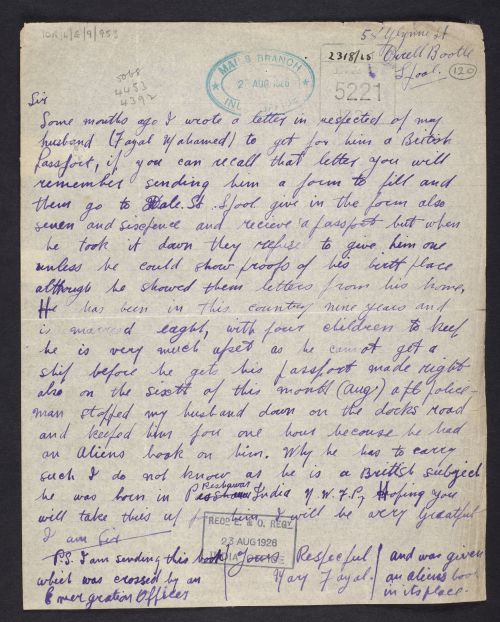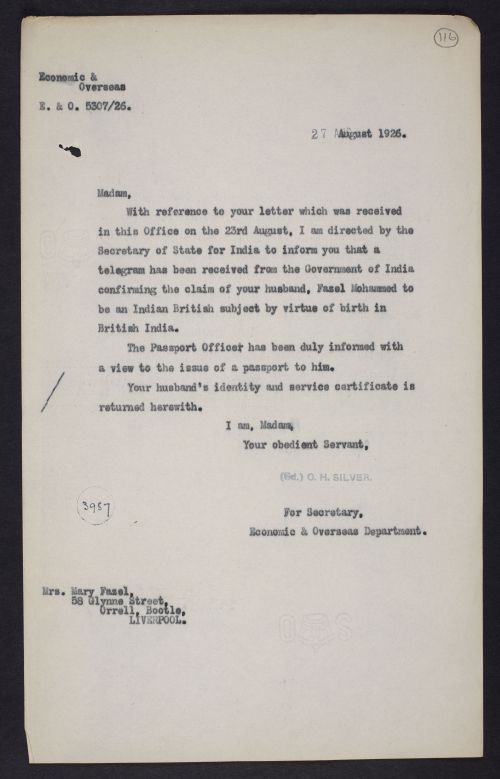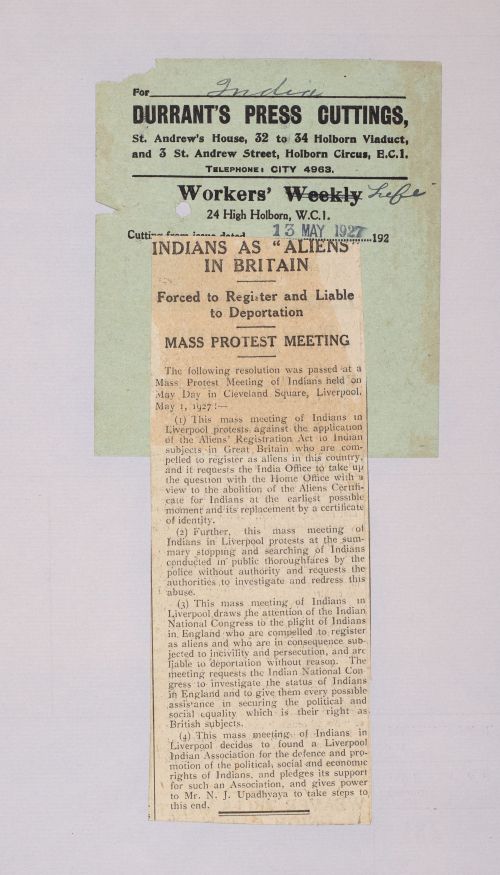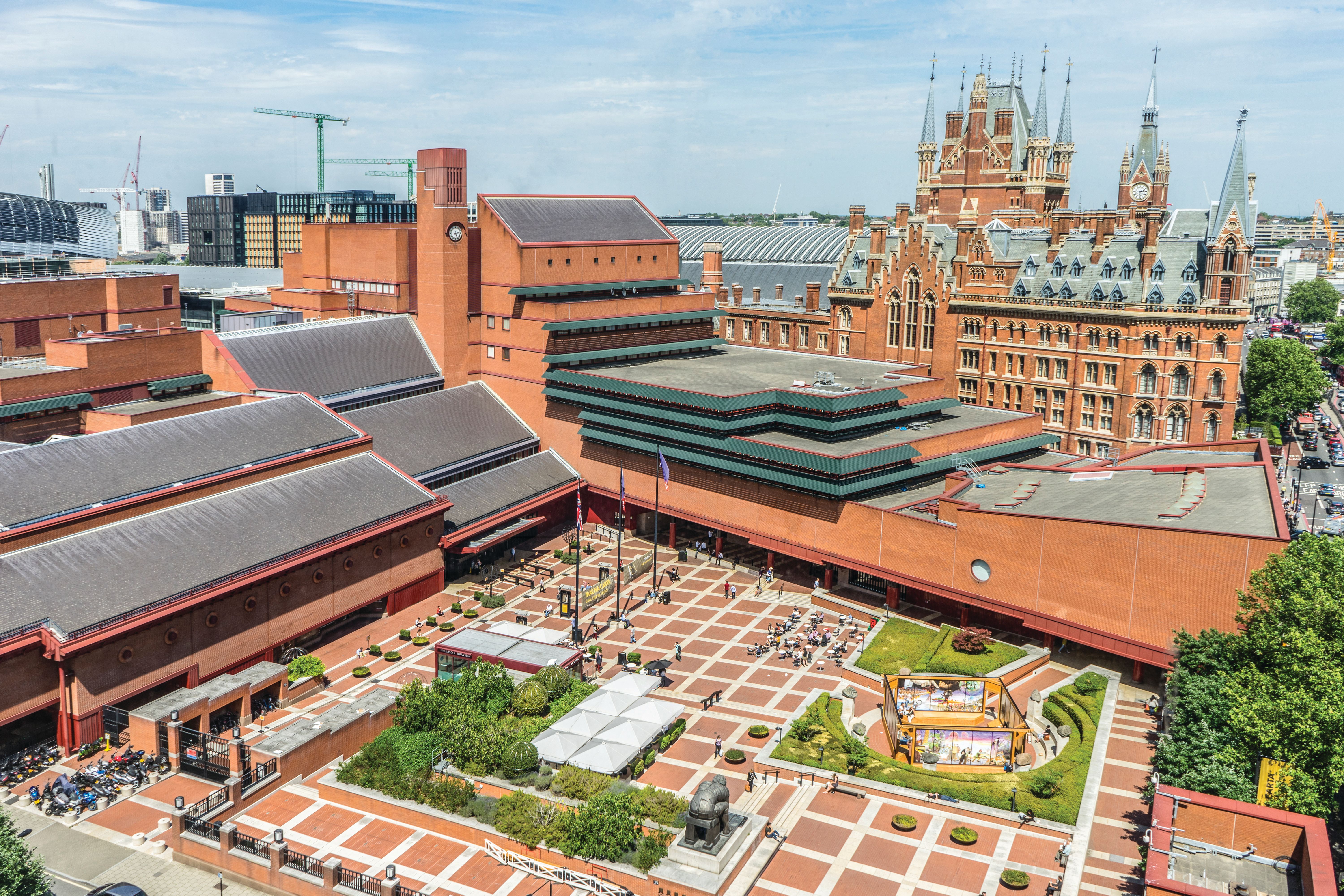The distress caused is evident from Mary Fazel’s correspondence with the India Office. Mary Fazel, who lived in Bootle near Liverpool, was the wife of Fazel Mohamed who worked as a fireman on board ship.
On his disembarkation at Cardiff on 1 August 1925 he had been registered as an ‘alien’ by local authorities, who refused to accept his Certificate of Nationality and Mercantile Marine book in spite of the fact that he was lawfully a British subject.
She appealed to the India Office to help redress this unjust treatment, documented in correspondence between her and officials for over a year. The Order led to much hardship for the family, as without proof of nationality he was unable to find employment aboard ship and experienced police harassment in the street.
It took over 11 months for Fazel Mohamed to receive the necessary documentation from India proving that he was a British subject. The Official Letter from the India Office on 27 August 1926 must have come as a great relief.
As the example of Mary Fazel shows, she and her husband had knowledge of their rights and appealed directly to the authorities to seek redress from discriminatory treatment.
Protests
The Home Office did face opposition to the Order. The India and Colonial Office were not supportive and the order also led to protests. For example, as is evident from the Durrant Press Cutting from 13 May 1927, the forced registration and threat of deportation led to a mass demonstration on May Day in Cleveland Square, Liverpool, where many Indian seafarers resided.
They lobbied that the requirement for Aliens Certificates for Indians be abolished and an end to the stop and search policy by the police which they saw being arbitrarily implemented.
They appealed to the Indian National Congress for an inquiry about the condition of Indians living in England and demanded equal treatment as British subjects and citizens of empire.







